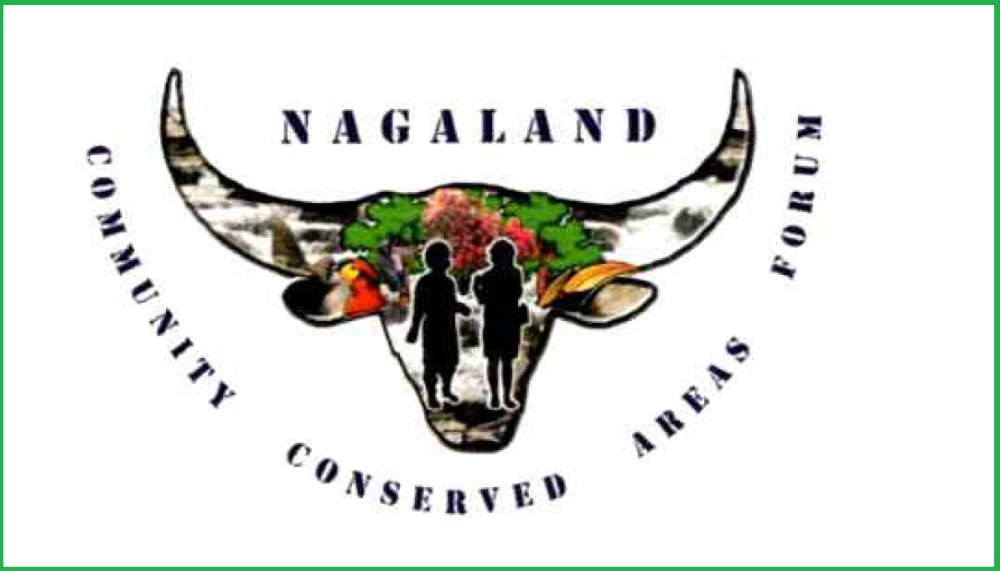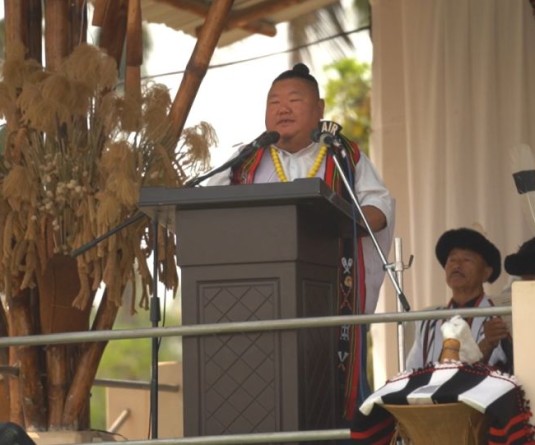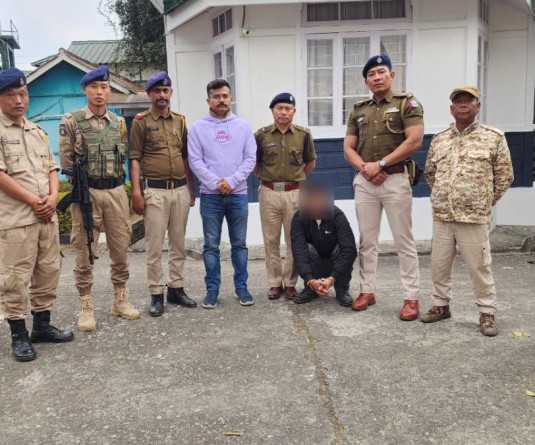
Calls for transparent and informed dialogue
Dimapur, December 16 (MExN): The Nagaland Community Conserved Areas Forum (NCCAF) has expressed its deep concern over what it termed as the “uncritical promotion” of oil palm cultivation by Nagaland’s Department of Agriculture (DoA).
To this end, the apex civil society body for community-conserved areas in Nagaland advocated for a transparent and informed dialogue on the long-term implications of oil palm cultivation.
As per the NCCAF, during the recently concluded 25th Hornbill Festival held from December 1-10, the DoA displayed a poster about "Myths and Facts” about oil palm cultivation underscoring is perceived benefits, including claims about environmental sustainability and economic viability.
While the poster presents a favourable narrative, the NCCAF held that it oversimplifies the complex socio-environmental impacts of oil palm cultivation.
Such promotion, without addressing the potential ecological and social risks, warrants urgent scrutiny and transparent public engagement, it stated.
Key concerns
Listing some of the key concerns related to oil palm cultivation, the NCCAF dismissed the assertion that oil palm only utilizes jhum fallow lands and wastelands.
This assertion overlooks global evidence where oil palm expansion has led to unintended deforestation and significant habitat loss.Nagaland, with its unparalleled biodiversity, risks losing vital ecosystems unless robust environmental impact assessments are mandated, it added.
The forum also disputed the claim that oil palm requires less water than crops like rice or sugarcane, stating that it remains a water-intensive crop compared to traditional farming practices in Nagaland.
Given the state's unique hydrological conditions, large-scale oil palm plantations could exacerbate water scarcity, particularly during dry seasons, it highlighted.
Despite references to intercropping as a mitigating strategy, large-scale oil palm plantations inherently favor monoculture, and such a practice depletes soil nutrients, disrupts ecological balance, and undermines the long-term sustainability of agricultural systems, the NCCAF said.
Instead, it advocated for diverse, regenerative farming practices.
Pointing out the impact on community and livelihoods, the forum noted that experiences from other regions indicate that oil palm plantations frequently result in economic dependence on unstable global markets, thereby marginalizing smallholder farmers.
Transparent mechanisms must ensure that any agricultural initiative, including oil palm, benefits local communities equitably and sustainably, it added.
The NCCAF further stated that while the claim that oil palm requires fewer chemicals may be valid in controlled settings, the risk of chemical runoff into local ecosystems remains a significant concern.
This poses serious threats to Nagaland's sensitive environment, it added, further calling for prioritization of organic and eco-friendly farming methods.
Corrective measures
In this connection, affirming its strong support for sustainable development that safeguards Nagaland's ecological integrity and cultural heritage, the NCCAF also provided sets of recommendations to the State Government.
These included adopting a precautionary approach by halting large-scale oil palm promotion until comprehensive environmental, social, and economic impact assessments are conducted.
It also called for engaging local communities in all agricultural policy discussions to ensure inclusive and participatory decision-making.
The NCCAF also advocated for promoting sustainable alternatives such as agroforestry, permaculture, and other sustainable farming practices that offer a balance between ecological conservation and livelihood generation.
It also recommended enhanced transparency by sharing detailed assessments and future plans for oil palm cultivation with the public to build trust and foster accountability.
Accordingly, the NCCAF called upon all stakeholders—government departments, community leaders, researchers, and civil society organizations—to engage in a transparent and informed dialogue on the long-term implications of oil palm cultivation.
Together, we can explore agricultural strategies that harmonize economic aspirations with ecological conservation, it said.
“Let us work collectively to ensure that Nagaland's development trajectory respects its rich biodiversity and empowers its communities sustainably,” added the NCCAF in a statement issued by its Chairman Heirang Lungalang and Secretary Seve R Vadeo.






